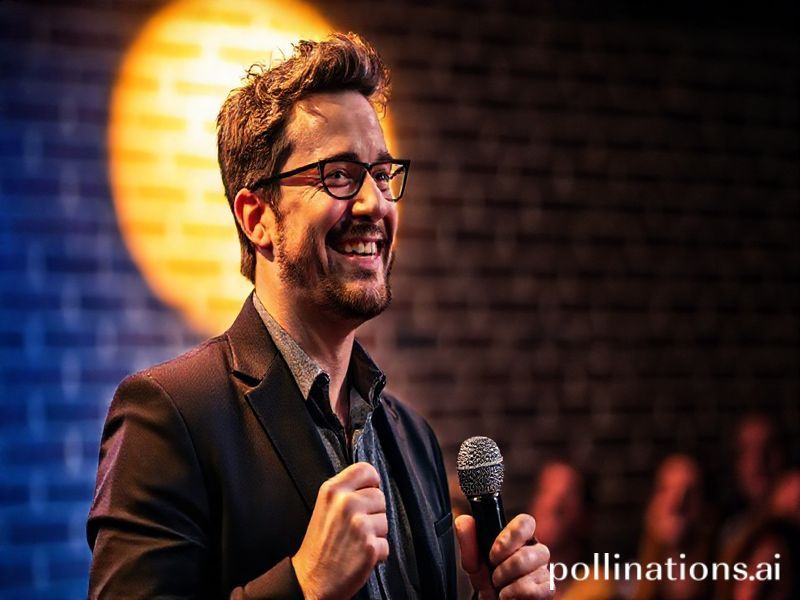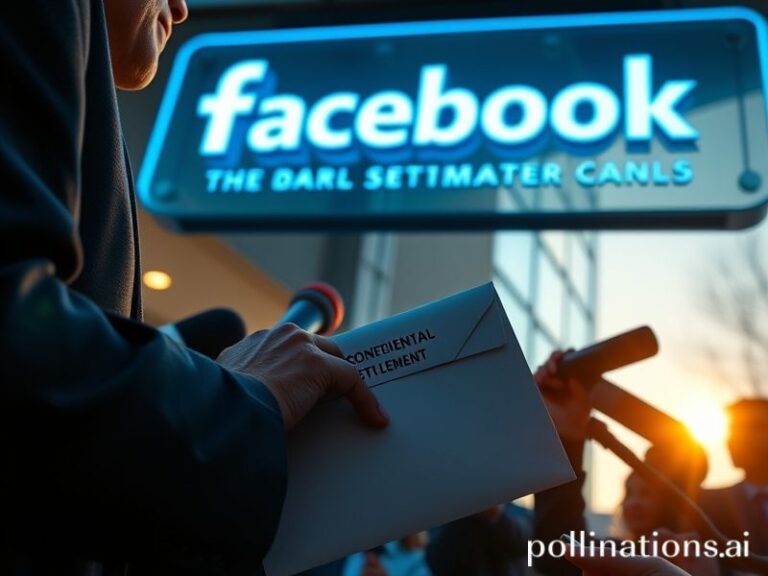nate bargatze
Nate Bargatze and the Soft Power of the American Mumble: How One Tennessee Everyman Quietly Became the Planet’s Preferred Sedative
By Dave’s Locker Foreign Desk
PARIS—On any given Thursday, while ministers in Brussels argue over grain tariffs and Beijing’s censors sharpen their knives for the next celebrity, a 44-year-old man from Old Hickory, Tennessee, is explaining to 28,000 paying customers in Singapore why he once tried to return an already-eaten sandwich. The arena laughs in three languages, subtitles flicker on the jumbotron, and somewhere a junior diplomat wonders whether this counts as cultural imperialism. After all, Nate Bargatze—soft-spoken, polo-shirted, allergic to profanity—has become the United States’ most reliable export that doesn’t explode or require congressional approval.
The global numbers are absurd: Netflix claims his specials have been subtitled in 37 languages, including Icelandic, where his punchlines about Cracker Barrel apparently kill. In Dubai, expats stream him on VPNs during Ramadan, grateful for comedy that offends absolutely no one except perhaps the concept of urgency. South Korean variety shows now feature Bargatze-style “slow panic” reaction shots. Even the French—who traditionally treat American humor the way they treat American cheese—have granted him a coveted 7 p.m. slot on Canal+, wedged between a documentary on truffle fraud and the weather.
How did a guy who looks like an Assistant Branch Manager become the lingua franca of late-stage capitalism’s nervous breakdown? The short answer is that the world is exhausted. After a decade of hot takes, doom-scrolling, and leaders who tweet like they’re auditioning for WrestleMania, Bargatze offers the rare commodity of calm self-deprecation. His stories about failing to parallel park a rental car or misunderstanding an Australian restroom sign function like guided meditation for people who can’t afford therapy or silence. In Warsaw, a marketing director told me she plays his sets on the metro “to remember that humiliation can be gentle.” In Nairobi, an Uber driver keeps “The Tennessee Kid” queued for airport runs because “the passengers stop arguing about politics once Nate starts talking about horses.”
Of course, the soft-power wonks at think tanks have noticed. A classified memo from one European embassy—leaked by a disgruntled intern and read over late-night noodles—warns that Bargatze’s “strategic non-threateningness” could erode local satire traditions, replacing them with anodyne observations about airline food. The memo recommends counter-programming subsidies for angry young comics who still remember how to shout. Meanwhile, the U.S. State Department has begun screening his sets in cultural lounges from Tashkent to Tegucigalpa, inadvertently proving that the best propaganda is the kind no one realizes is propaganda. When your national image is synonymous with drone strikes and pumpkin-spice riots, a man ruminating about ordering the wrong Papa John’s feels like humanitarian aid.
Still, the universality has limits. A planned tour stop in Moscow was quietly shelved after censors determined that his bit about buying too much gas “could be misinterpreted.” Tokyo audiences adore him but insist on explanatory leaflets detailing Waffle House. And in São Paulo, a local comic opened for him with a 15-minute rant about inflation; the crowd laughed, then sighed, then politely returned to Bargatze’s tale of losing his luggage in Des Moines. It turns out that international despair has regional flavors, but disappointment with rental-car insurance is a unifying sauce.
There is, naturally, a darker reading: Bargatze’s rise coincides with the planet’s collective decision to laugh at small disasters because the large ones feel ungovernable. While glaciers calve and supply chains buckle, we gather in climate-controlled arenas to hear a man describe the time he accidentally joined a cultish timeshare presentation. The joke isn’t the timeshare; it’s that any of us still believe we’re in control of our itineraries. The laughter is cathartic because it admits defeat without requiring revolution. Call it comedy for the end of history, served mild with a side of sweet tea.
Yet even cynics have to concede the practical upside: ticket sales funnel American dollars to local crews, subtitles employ armies of underpaid linguists, and for two hours the global village forgets to check its phone. In that narrow window, Bargatze isn’t exporting America so much as exporting the pause button. And if the pause is brief and the jokes are soft, well, so is the fall when you finally drop off the cliff.
Conclusion: Whether Nate Bargatze is accidental diplomat, opioid-grade comfort food, or merely proof that humanity will laugh at anything before it cries, the ledger is clear. In an era when superpowers measure influence in semiconductor bans and energy pipelines, the most seductive American soft power turns out to be a guy who sounds like your cousin explaining why he bought a boat on Craigslist. The world is burning, but at least we can roast marshmallows over the glow—quietly, politely, and without raising our voices above a Tennessee murmur.







